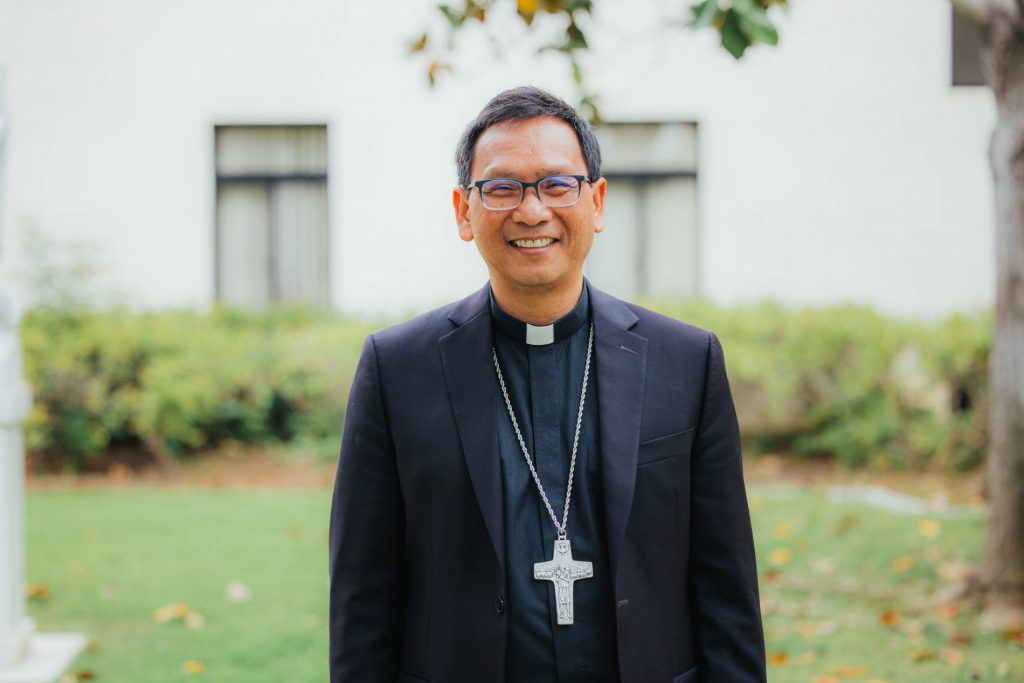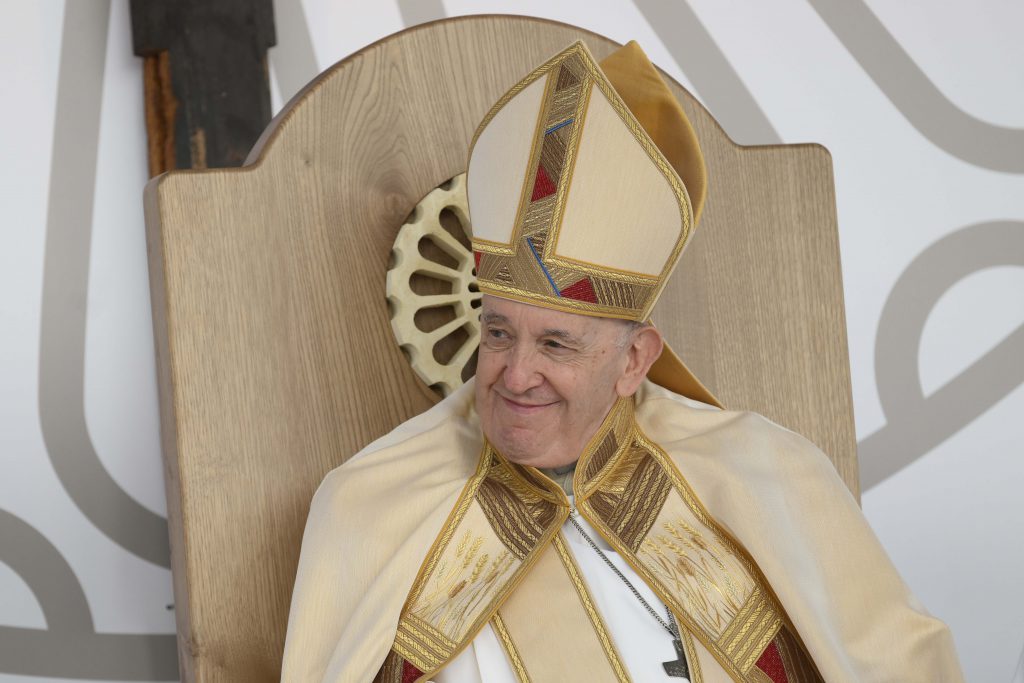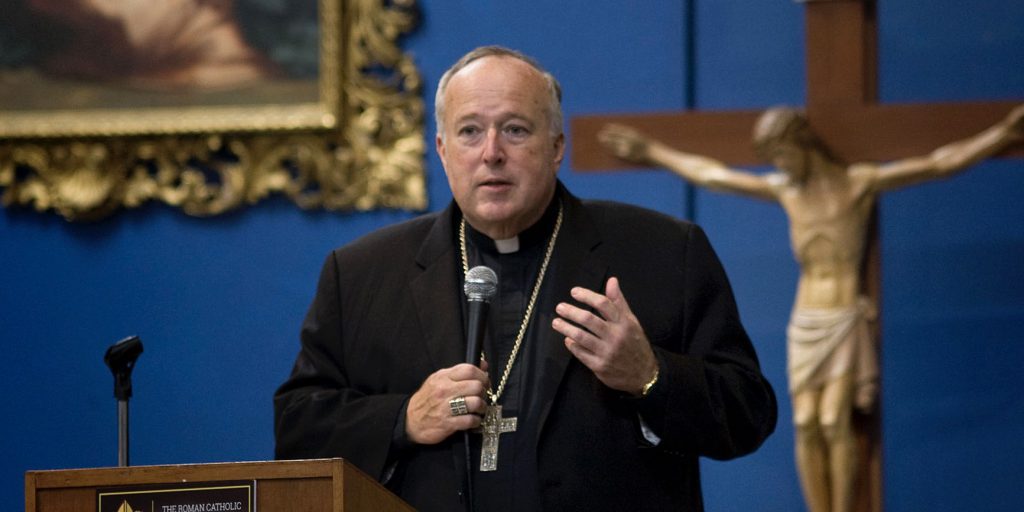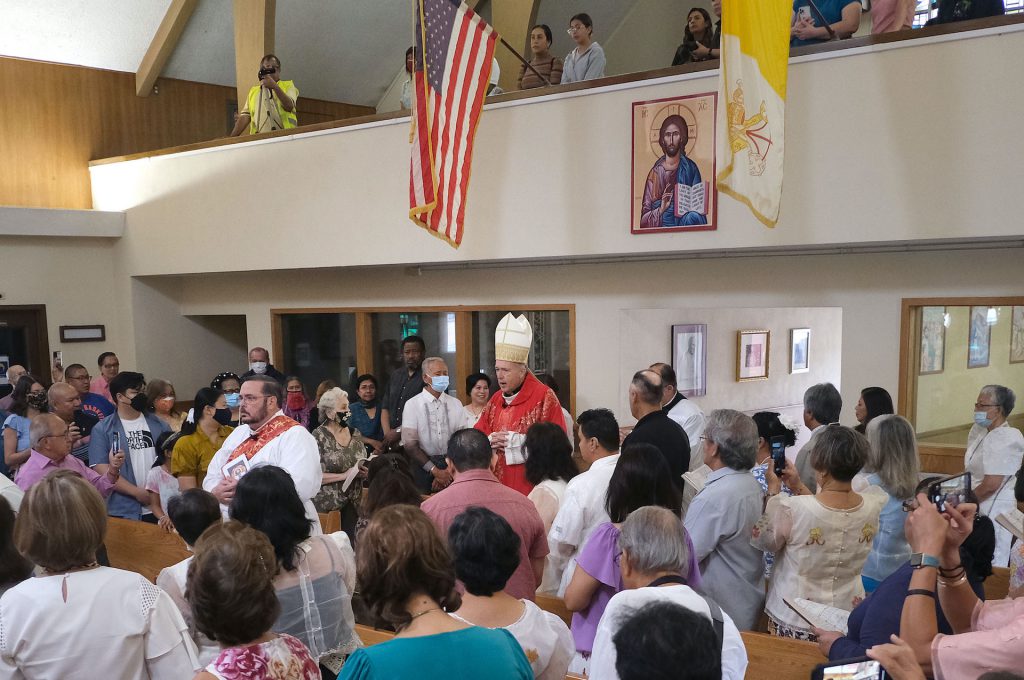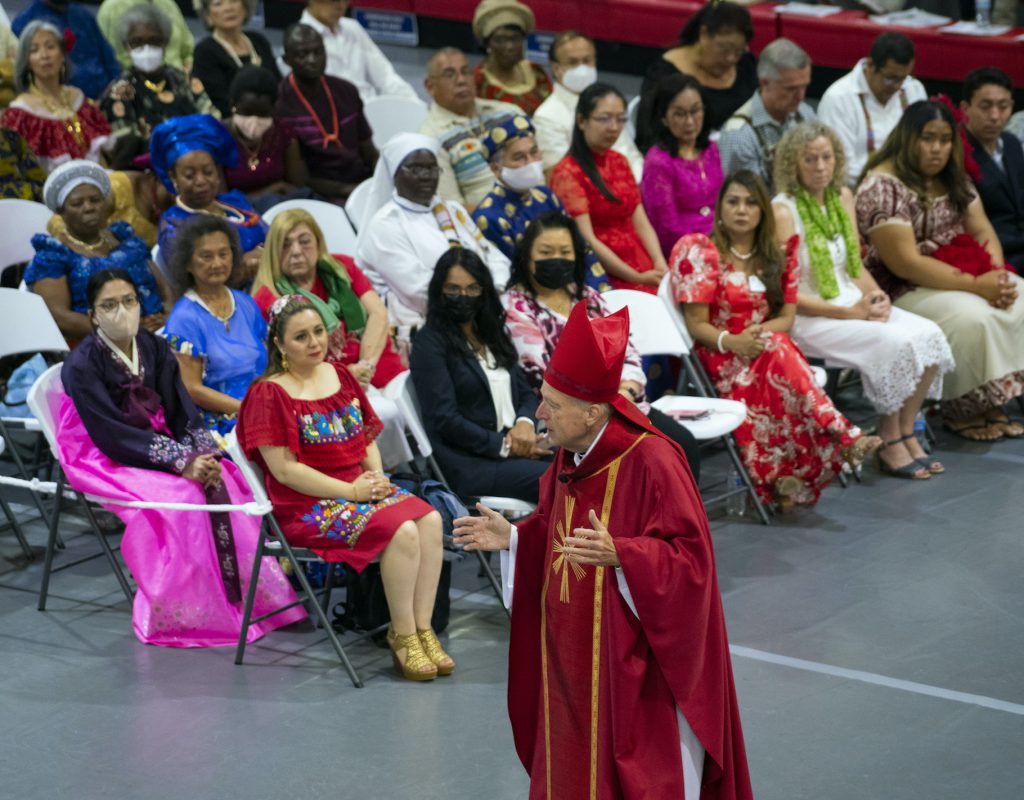SAN DIEGO — “I grew up in a segregated society, segregated schools, segregated lunchrooms and segregated everything. Also, a very, very segregated Catholic Church.”
Dr. Constance Carroll, chancellor of the San Diego Community College District, shared her story as an African American Catholic with the participants of the first of three virtual community forums organized by the diocese on the issue of racism.
The goal was to provide a platform where Catholics of diverse races and ethnicities could candidly share their personal experiences, particularly in a Church context, learn from one another, and propose practical ways they themselves and their parishes could battle racism.
Around 100 faithful attended each forum, called “My Church, My Story: Overcoming Racism,” held on consecutive Wednesday nights in August. Their insights and recommendations will be presented to Bishop Robert W. McElroy, shared with the diocese’s clergy, and posted on the page sdcatholic.org/racism.
The bishop addressed the participants on the most recent forum, on Aug. 26. As he spoke, protesters were once more taking to the streets in another city, clamoring for racial justice after yet another Black man had been shot by a white police officer.
“What this forum represents is precisely what all of us need to be doing in the life of the Church: To confront the realities of racism, to understand them in greater depth, to ponder their origins in the human heart, and to confront how they are such a contradiction in the Gospel of Jesus Christ in every dimension,” he said.
And the Gospel “calls us to love God, and love one’s neighbor.”
In each session, the participants heard from a speaker, then broke into small groups to share their experiences in the local Church and to propose ideas of how to effect change, starting at the parish level. These more intimate conversations revealed a range of experiences. They shared a common thread though: The current crisis demanded an urgent response.
Many participants expressed an appreciation for their diverse parishes.
“The Church was the one place I felt comfortable, where people welcomed me even if I did not speak a lot of English,” said one participant, a young mother who had immigrated from Indonesia.
She expressed a deep worry about the state of race relations, as did many others.
“I see what’s going on in the news. I wonder if it’s going to be safe for my kids when they grow up,” the mother of two boys said.
Some longed for their clergy to connect the current racial turmoil with the Gospel and the teachings of the Catholic faith.
Others said that parishes were segregated places, with ethnic and racial groups keeping to themselves at Mass and in social events, and that it was not easy to cross those cultural lines. Some said they felt ignored by the mostly white parish establishment. Some said the demographics of their parish had changed, as had the communities around them, and that the faithful had to do more work to bring everyone together.
The forums just scratched the surface of a centuries-old problem that the Church has to confront and overcome, said Father Michael Pham, who directs the diocese’s Office for Ethnic and Intercultural Communities, which organized the series. He announced two additional virtual community forums Hispanics in the Church.
Carroll, the first speaker, noted that the very first bishop of the U.S. was a slaveowner, as were many in his congregation in Baltimore, where she was raised. She described her life growing up as Catholic in those times, when African Americans could not attend Mass with whites.
“Slavery and the Church were partners for hundreds of years in Maryland,” she said.
“The Church has been working diligently to overcome this particular history,” she added.
Deacon Marvin Threatt was the speaker in the second forum. An ordained deacon for 37 years, for a time he was the only African American member of the clergy in the San Diego Diocese. He shared painful moments during his years of service when white priests and a white director of an organization slammed the door on his requests simply because of the color of his skin.
“For those of us who are in the Church as disciples, racism is a sin, it’s not an option,” he said. “And if racism is left unabated in our lives and in our hearts, it can do a lot to keep us out of heaven.”
The third speaker was Lisa Petronis, a psychologist and a leader in the Catholic Psychotherapy Association. She presented a video that profiled Ruby Nell Bridges Hall, the first African American child to desegregate an all-white elementary school in New Orleans. Then she shared the story of an encounter she had recently with a young boy, whose faith was sustaining him as he endured an extraordinarily tough life virtually on his own with his younger brother.
“He was responding with his heart,” she told the participants. “In the end, it’s about love.”
In his remarks, the bishop said racism exists on many levels, “subtly operating, in our choices, in would be held, on Sept. 23 and 30, to continue that conversation. They would focus on the experience of Native Americans andour actions, in our relationships,” as well as “institutionally, where it has embedded itself within the structures of our society.”
He said it was important to identify the ways racism undermines people’s lives. “And we have to be willing to take the hard steps to combat them.”
He said “Catholic social teaching tells us that painful moments can be wonderful moments of renewal. But they are hard.”
Information about the diocese’s and the Church’s efforts to combat racism may be found in the page sdcatholic.org/racism. The page will provide information about the next two community forums and videos from the speakers in the first ones. The page also provides links to Bishop McElroy’s homilies on the subject, and resources from the California Catholic Conference and the U.S. Conference of Catholic Bishops.





